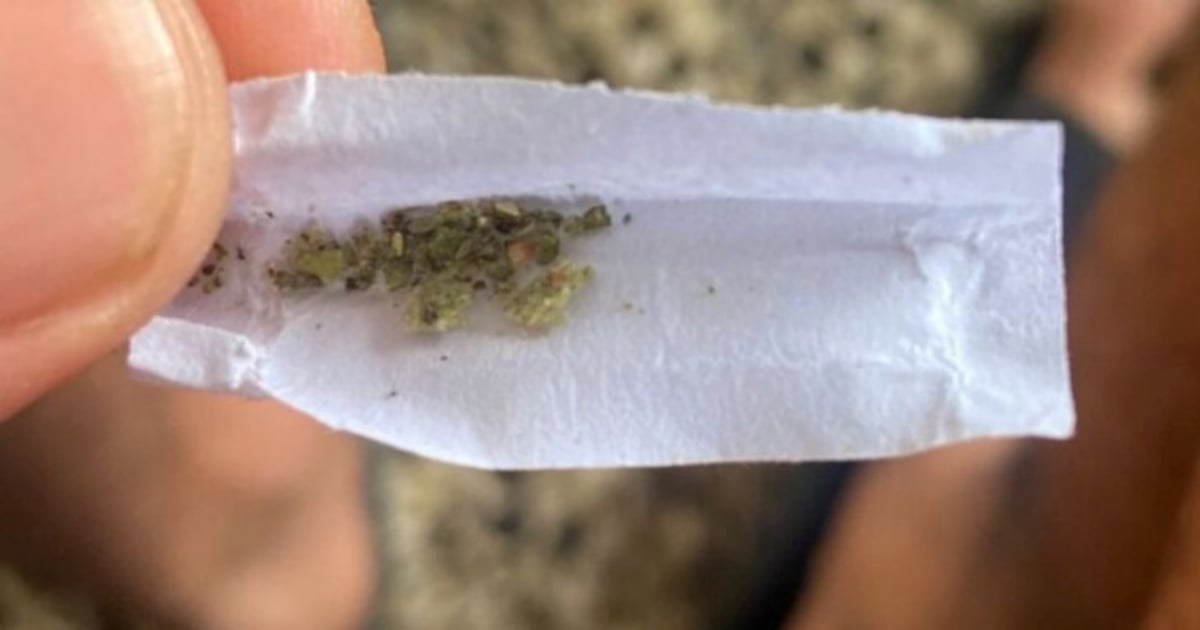
In a landmark trial, the Provincial Court of Camagüey sentenced a prisoner to 19 years of confinement for smuggling a drug known as "el químico" into the prison where he was serving a previous sentence.
The accused was tried for a crime related to illicit drugs or similar substances during the public oral trial of case 99 of 2024, held in the Chamber of Crimes against State Security, in its criminal jurisdiction, of the Provincial People's Court of Camagüey, as reported by local official media.
Upon his return from a visit to the penitentiary, the accused was found in possession of 27 packets containing the synthetic cannabinoid known in Cuba as "el químico," along with two cigarettes made from the same substance.
According to the newspaper Adelante, with that amount, up to 54 doses of the drug could be produced, each of which has an illegal market price of 350 pesos.
The inmate, whose name was not disclosed, was serving a six-year prison sentence, which was set to expire in 2026. The report did not specify the crime for which he was sentenced to that penalty.
The court imposed a combined sentence of 19 years of imprisonment, taking into account the remaining time left to serve, along with additional measures including the deprivation of public rights, the confiscation of the seized drugs, and a prohibition on leaving the country for the same period.
This process was one of several exemplary trials conducted by the Cuban government during the National Exercise for the Prevention and Confrontation of Crime, Corruption, Illegal Activities, and Social Indiscipline that took place the previous week.
The newspaper Adelante stated that the trial, held publicly, was conducted "in full compliance with due process and procedural guarantees, as established by the Constitution of the Republic and the Criminal Procedure Law."
The note warned that "in the face of the slightest action related to drug trafficking, the will of the Cuban state remains one of zero tolerance, and all the weight of the law will fall on those who attempt to spread this scourge in our society."
The trafficking of "the chemical" and its consumption among Cuban youth have surged to alarming levels in the past two years, raising concerns among the public and highlighting the inaction of the authorities.
In recent months, several police operations have emerged to apprehend sellers of the dangerous synthetic drug, which unfortunately is being consumed by an increasing number of young people in Cuba.
A total of 22 people were arrested in Marianao, Havana, in September, accused of trafficking the narcotic; meanwhile, in other raids in November, the police detained an unspecified number of individuals for selling "the chemical" and marijuana in the Havana municipalities of Playa and Cerro.
For months, social media has been featuring videos of young Cubans under the influence of "the chemical," the exact components of which are unknown.
A few days ago, a young man died in Havana after falling from a rooftop while under the influence of "the chemical."
The regime has pointed to Cubans living abroad as the primary culprits behind the increase in drug consumption in the country.
Frequently Asked Questions about Drug Trafficking and Exemplary Trials in Cuba
What is "the chemist" and why is it dangerous?
"The chemical" is an extremely potent and dangerous synthetic cannabinoid designed to mimic the effects of marijuana. It is clandestinely produced using toxic ingredients such as formaldehyde and veterinary anesthetics, which increases the risk of poisoning and overdose deaths. This drug is up to one hundred times more powerful than marijuana and has devastating effects on the physical and mental health of young Cubans.
What was the sentence for the inmate who brought "the chemical" into the Camagüey prison?
The Provincial Court of Camagüey sentenced the inmate to 19 years of imprisonment for introducing the drug known as "el químico" into the prison. The sentence also included additional measures such as the deprivation of public rights and a prohibition on leaving the country for the same duration.
What are exemplary trials and what is their purpose in Cuba?
Exemplary trials in Cuba are public judicial proceedings aimed at deterring the commission of crimes by showcasing the legal consequences of illegal actions. According to the Cuban government, these trials not only punish the guilty but also serve an educational purpose for the community, as they are attended by individuals who may be prone to delinquency.
How has the trafficking of "el químico" affected Cuban society?
The trafficking of "el químico" has led to growing concern in Cuba due to its widespread use among young people, who are facing severe physical and mental effects from this drug. The lack of control and education regarding its dangers has resulted in an increase in crime and overdose deaths, highlighting the regime's inability to manage this public health crisis.
Filed under: